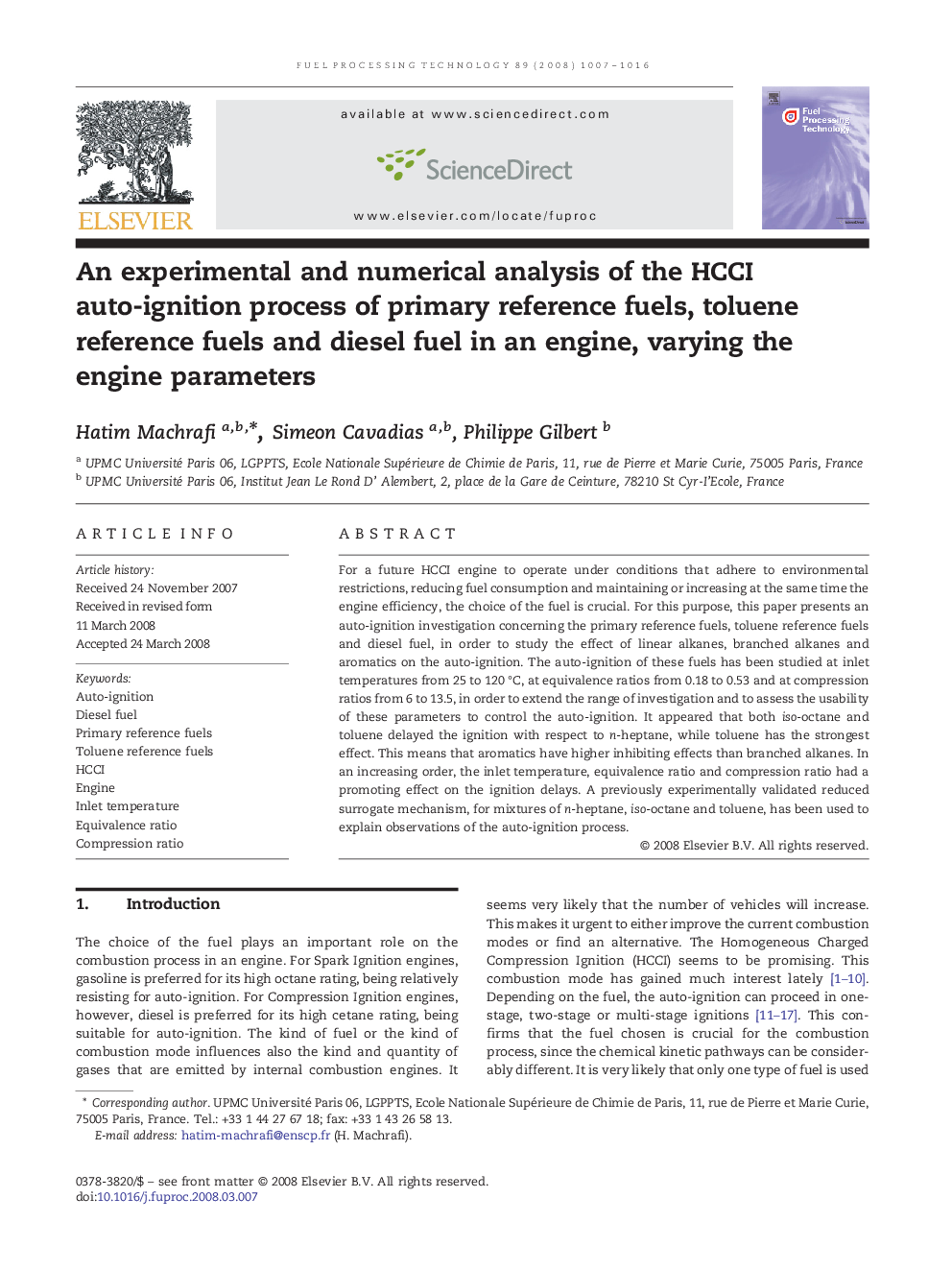| Article ID | Journal | Published Year | Pages | File Type |
|---|---|---|---|---|
| 211423 | Fuel Processing Technology | 2008 | 10 Pages |
For a future HCCI engine to operate under conditions that adhere to environmental restrictions, reducing fuel consumption and maintaining or increasing at the same time the engine efficiency, the choice of the fuel is crucial. For this purpose, this paper presents an auto-ignition investigation concerning the primary reference fuels, toluene reference fuels and diesel fuel, in order to study the effect of linear alkanes, branched alkanes and aromatics on the auto-ignition. The auto-ignition of these fuels has been studied at inlet temperatures from 25 to 120 °C, at equivalence ratios from 0.18 to 0.53 and at compression ratios from 6 to 13.5, in order to extend the range of investigation and to assess the usability of these parameters to control the auto-ignition. It appeared that both iso-octane and toluene delayed the ignition with respect to n-heptane, while toluene has the strongest effect. This means that aromatics have higher inhibiting effects than branched alkanes. In an increasing order, the inlet temperature, equivalence ratio and compression ratio had a promoting effect on the ignition delays. A previously experimentally validated reduced surrogate mechanism, for mixtures of n-heptane, iso-octane and toluene, has been used to explain observations of the auto-ignition process.
